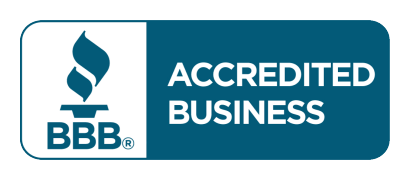Investment risk is always present, but during COVID-19, the stock market has experienced so much volatility that investors are beginning to wonder where to invest. Investors must consider how investment risk can decline their portfolio’s value due to economic events that impact the entire stock market.
The primary investment risks to a portfolio are equity risk, interest rate risk, and currency risk, which is when investors choose to invest in other countries with stable interest rates and currencies and not their own country’s offerings. This risk creates a loss of economic confidence for domestic investors who choose not to invest in their local economy.
Investigate Your Portfolio
Investors should take the time to investigate the U.S. company stocks in their portfolio to determine how they pay out dividends, and if the payout is reliable during this period. Other considerations investors must address to help offset investment risk:
Keeping mostly cash in a portfolio can create other risks such as inflation risk and time-horizon risk.
Taking more market risk during a recession can reap higher returns later when the market recovers.
Examine investing in foreign markets or emerging markets to determine if these investments may provide positive returns if their economies recover ahead of domestic markets.
Modify allocations appropriately, rebalance, and continue to invest using dollar-cost averaging.
Maintain a diversified portfolio, which is the best way to help offset Investment risk.
Longer time horizons help reduce the impact of investment risk; investors should stick to their overall investment objectives and overall portfolio, not individual holdings.
Investors must remember that with more risk comes more reward and that the lowest risk market-related investments are the ones that also produce the lowest yields. Additionally, remember that no investment is without risk.
Work with a Financial Professional
During COVID-19, it is essential to continue to work with your advisor to determine a strategy that fits your risk profile outside of this period. With unemployment high and the economy down, volatility will continue as investment risk for certain types of investments progresses. Remember that letting your money sit idle during this period may mean missed opportunities for your portfolio.
Increased Allocation of Principal-Protected Products
One solution to addressing investment risk, inflation risk, and tax risk are by increasing the allocation of principal-protected products. The benefits of fixed-indexed annuity products address these significant dangers to a retirement portfolio:
Inflation Risk- Allocation of these products allows asset allocation strategies to address inflation.
Taxes Risk- Leveraging tax-free investment strategies increases investment capital.
Longevity Risk- Utilizing “income for life” features address longevity risk and long-term care risk.
Survivorship Risk- “Death Benefits” provide tax-advantaged mitigant against untimely death.
Market Risk- Principal protection provides a buffer against stock market fluctuations.
For Questions
If you have questions about investment risk or any of these additional risks, now is a great time to meet and review your retirement portfolio to ensure your retirement plan is on track.
Investing regular amounts steadily over time (dollar-cost averaging) may lower your average per-share cost. Periodic investment programs cannot guarantee profit or protect against loss in a declining market. Dollar-cost averaging is a long-term strategy involving continuous investing, regardless of fluctuating price levels, and, as a result, you should consider your financial ability to continue to invest during periods of fluctuating price levels. Guarantees are backed by the financial strength and claims-paying ability of the issuing company. This article is designed to provide general information on the subjects covered. Pursuant to IRS Circular 230, it is not intended to provide specific legal or tax advice and cannot be used to avoid penalties or to promote, market, or recommend any tax plan or arrangement. You are encouraged to consult your personal tax advisor or attorney.
SWG 1253815-0720c
In addition, no matter the size of your nest egg, we can help you make it work in your retirement. At Scott Braddock Financial, we know that it is your retirement, and you should have control over it. We offer our experience and knowledge to help you design a custom strategy for financial independence. In conclusion, contact us today to schedule an introductory meeting!


